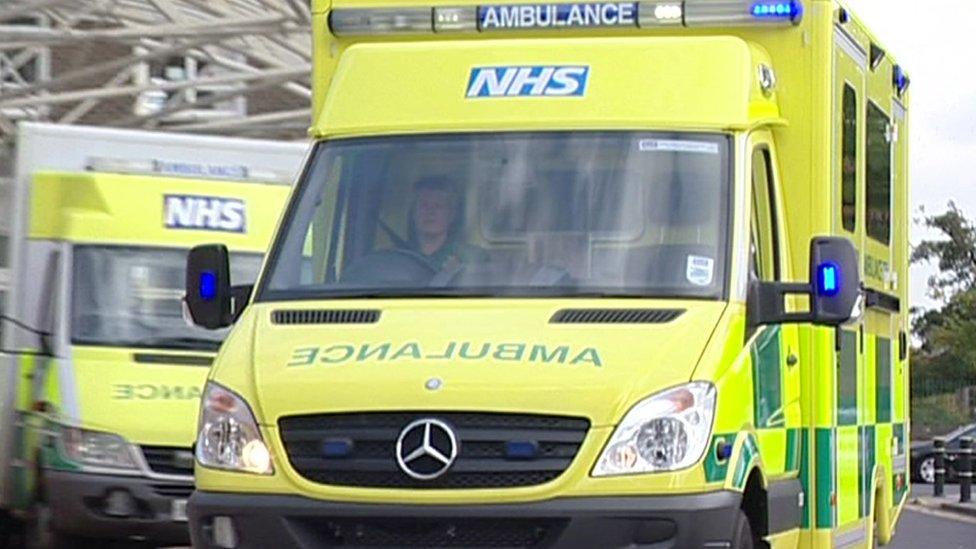Striking North West ambulance workers say patients 'not safe'
- Published
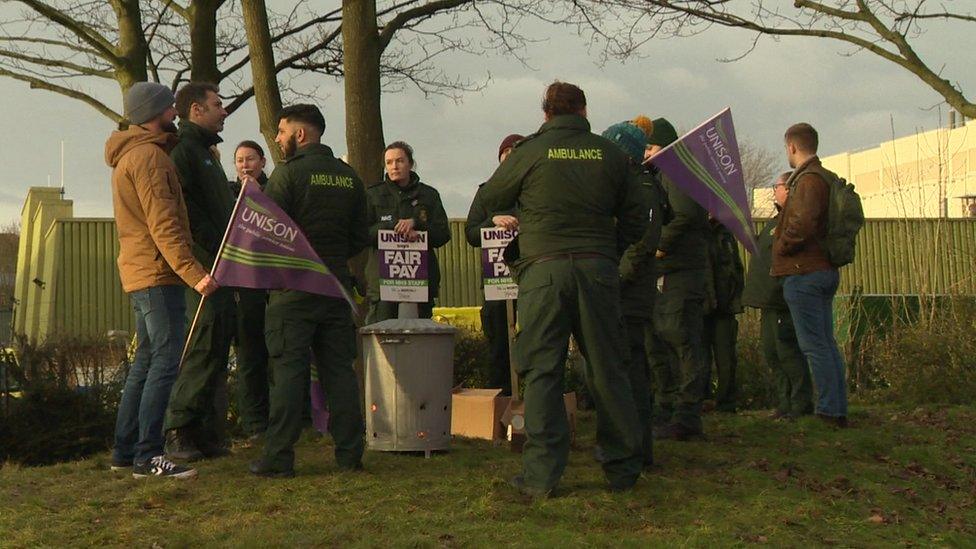
Staff at Manchester Central Ambulance Station are on strike in a row over pay
North West Ambulance Service workers taking part in national strikes have said they are angry about the impact of staffing levels on patient safety.
Unison members on a picket line in Manchester said NWAS staff were leaving for better pay and better conditions elsewhere.
The walk-out is a protest against current pay and working conditions.
North West Ambulance Service said a service for life-threatening injuries and illnesses would still run.
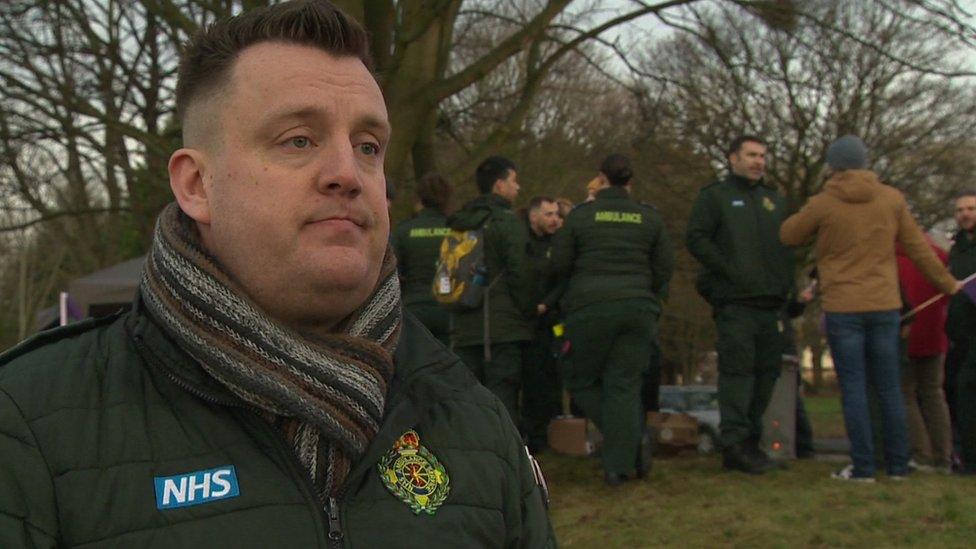
Matthew Adams he is angry about the impact of staff levels on patient safety
Speaking from outside Manchester Central Ambulance Station, emergency medical technician Matthew Adams, said staff were "becoming more and more angry" about the safety levels for patients.
"We are on corridors, we are on the back of ambulances outside hospitals and this is all down to lack of staff," he said.
He said staff were leaving to go to other jobs because "they are looked after better".
"We need to recruit, we need to retain and we need to invest in our staff," he said.
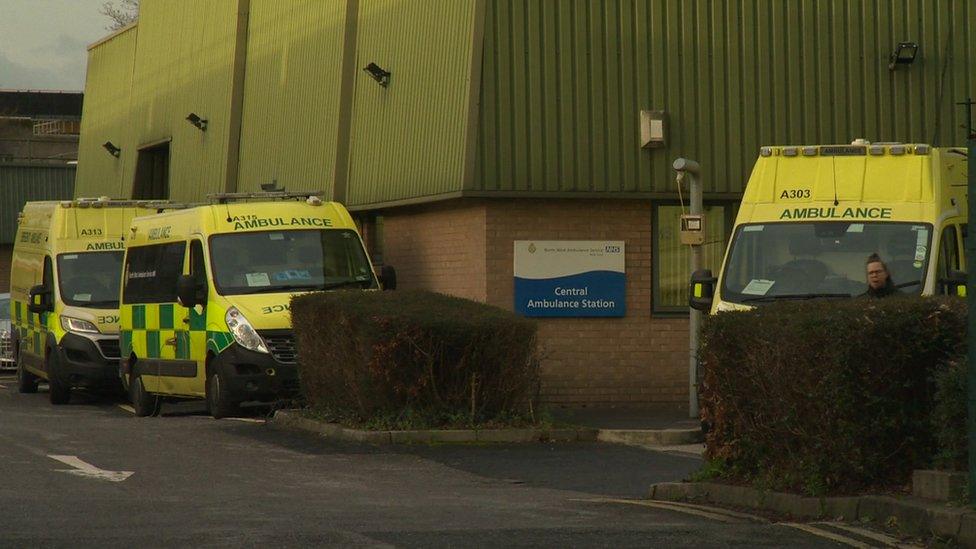
Ambulances were still responding to the most serious emergencies
Paramedic Maeve Smith said the ambulance service needed "professional pay".
"We need to retain our experienced staff and maintain high quality within our services," she said.
"We need a professional wage that reflects the responsibilities that we take on so that people will want to do this job going forward."
Paramedic and mother-of-two Samantha McBurney, who is also on strike, said she had seen demand on the service increase during her 12-year career.
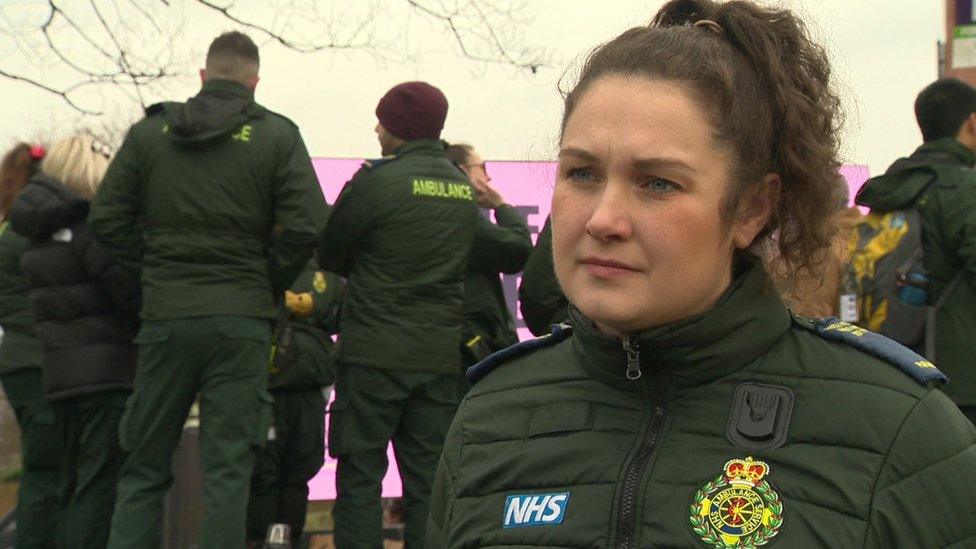
Samantha McBurney said long hours are impacting her family life
"We are a lot busier, jobs are waiting a lot longer," she said, adding she wanted staff to being paid "adequately".
John Richards, assistant general secretary at Unison, said paramedics who are on strike were leaving the picket line to attend high-priority 999 calls.
"This isn't something they do lightly. Huge numbers of workers voted to take industrial action," he said.
"We are willing to discuss, negotiate and compromise."
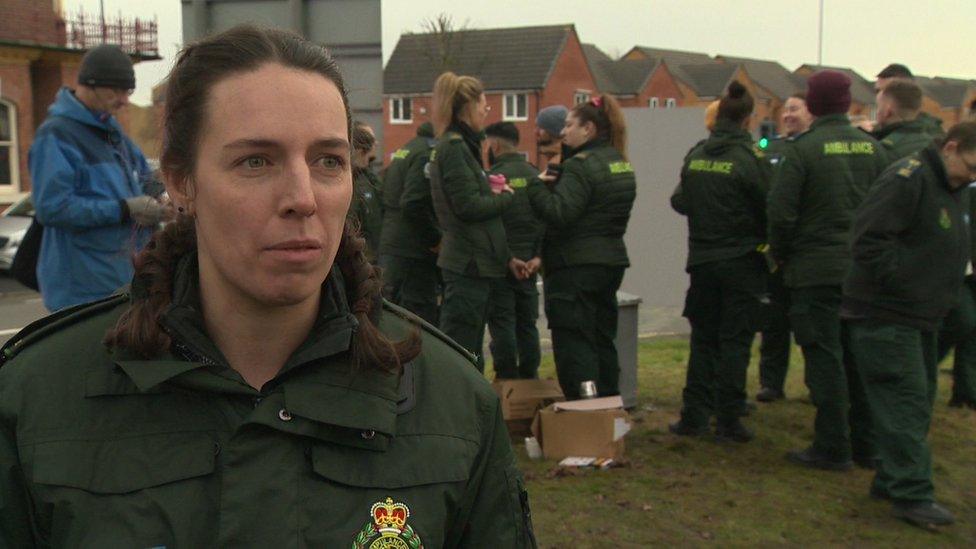
Maeve Smith said the service needs 'professional pay' to maintain experienced staff
NWAS's director of operations Ged Blezard urged people to still call 999 in emergencies.
He said the service was "maximising" its own resources, using private providers and military support and working closely with trade unions to provide cover for the most serious emergencies.
He said life-threatening injuries and illness would be prioritised and asked other patients to seek alternative transport if they still require hospital treatment.

Why not follow BBC North West on Facebook, external, Twitter, external and Instagram, external? You can also send story ideas to northwest.newsonline@bbc.co.uk, external
Related topics
- Published11 January 2023
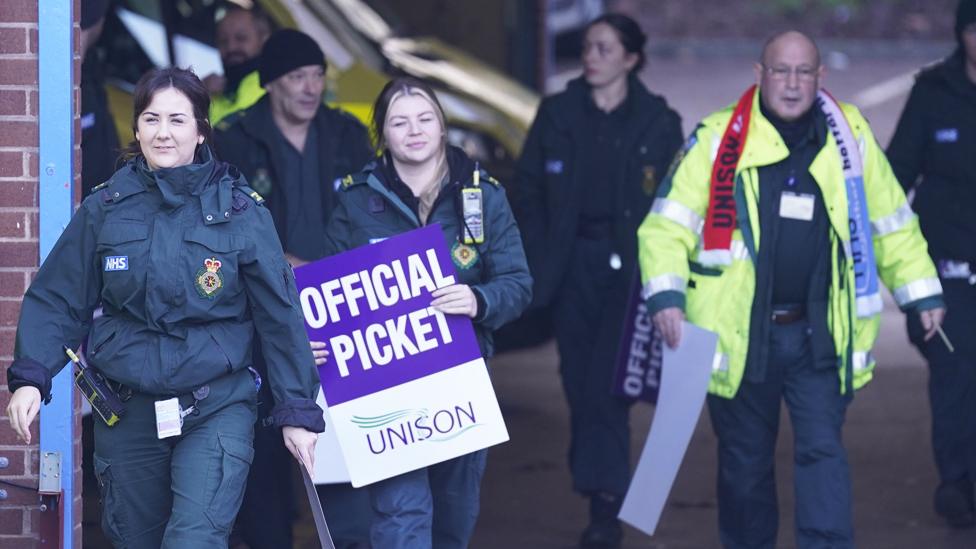
- Published10 January 2023
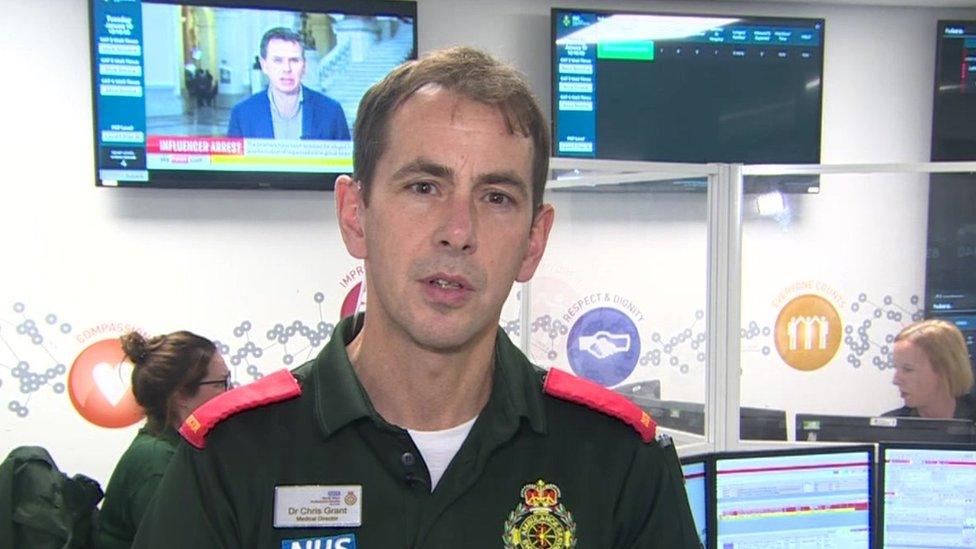
- Published10 January 2023
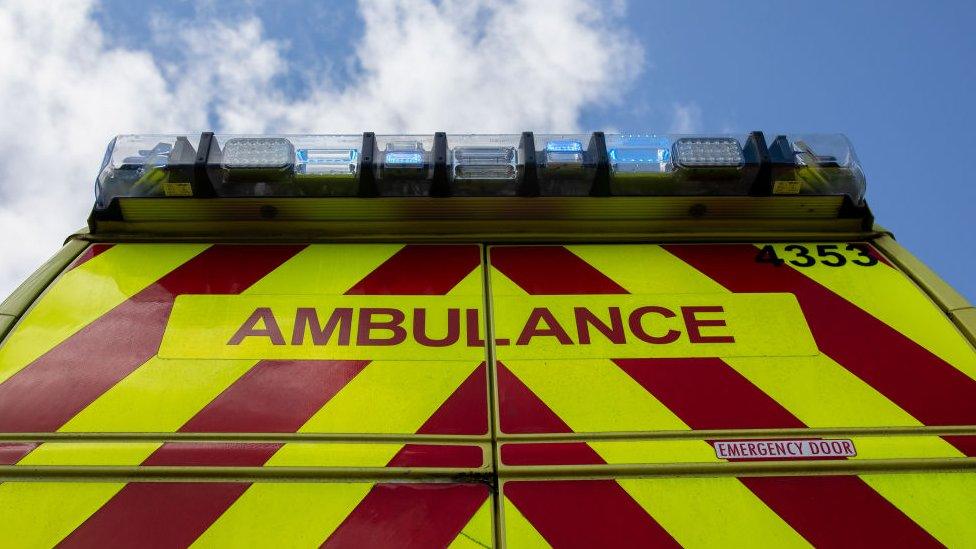
- Published10 January 2023
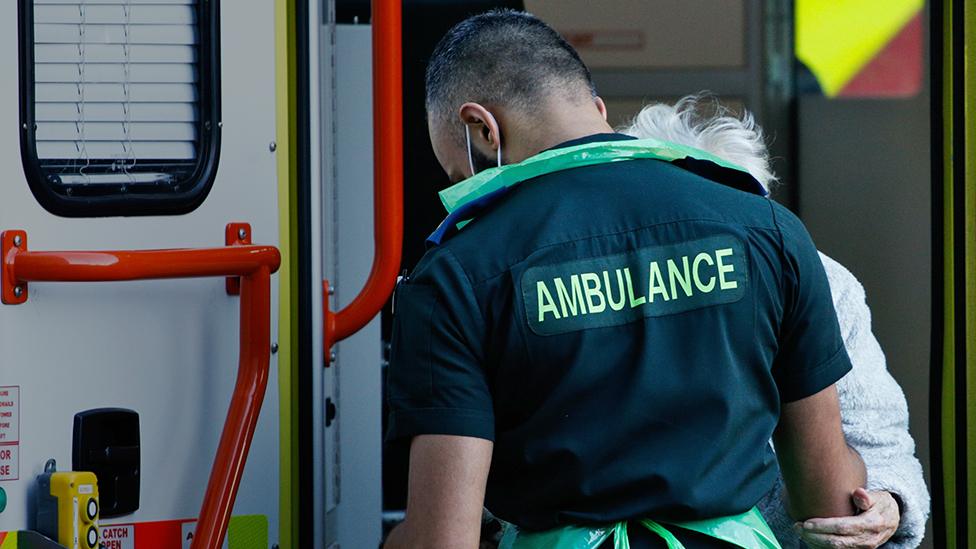
- Published9 January 2023
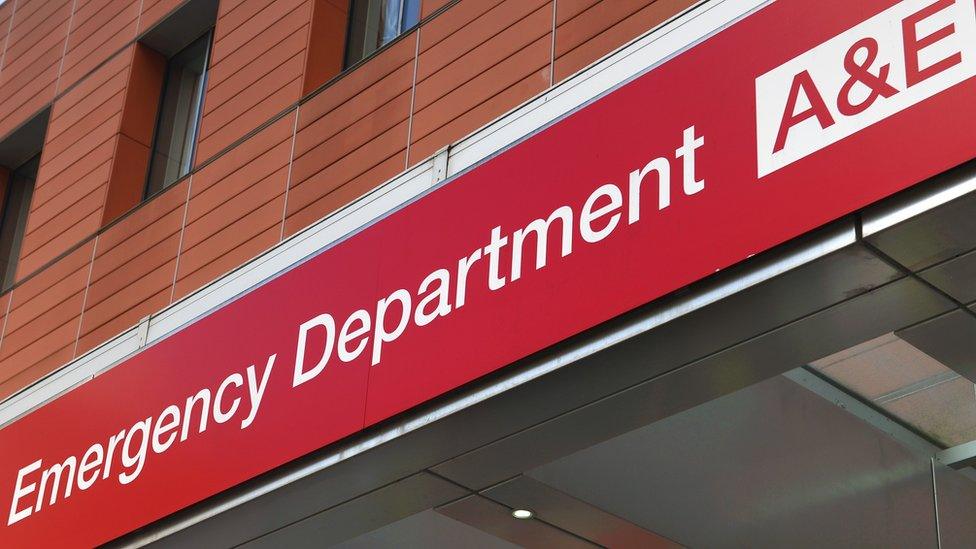
- Published29 December 2022
